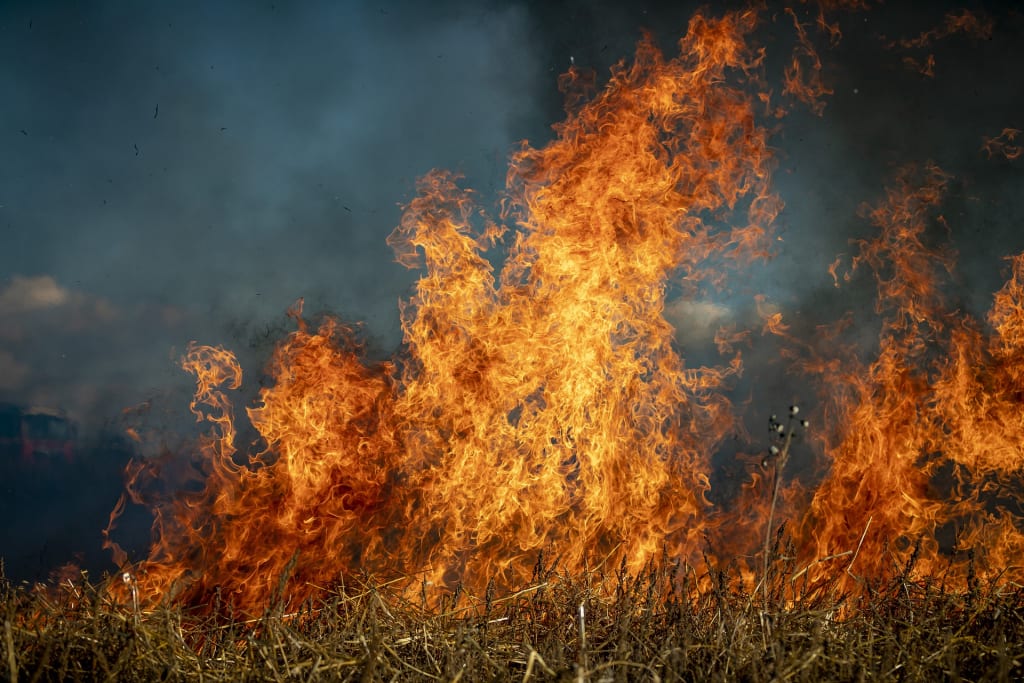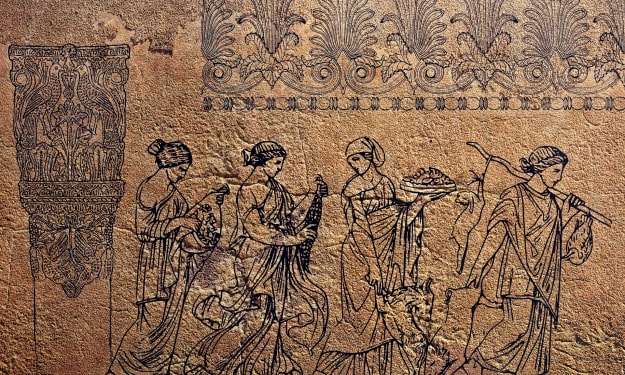
I grew up in the city, cradled in concrete, smog, and grime. The front yards, if there were any, were filled with dry, dead grass so sharp and stiff it hurt to touch, the color of a tea stain at the bottom of the cup. When I was young, I assumed that the images on postcards—canyons striated like sunsets, clear-watered rivers spilling white foam over moss-furred stones—were edited to look that beautiful.
When we moved west, I learned what unreal beauty looks like. The postcards, it turned out, had not lied. People there used to say, “The sky is wider here.” Fields of yellow corn and orchards brimming with the kind of perfect apples I had thought could only be sculpted from wax. Barns laced like gingerbread houses in snow seasons, bordered by sugar-dusted mountains. People there were farmers, making their living off the land. Many kids never left the state, and spent their entire lives there, inheriting the family trade. After the move, nature’s beauty was not the only thing I discovered for the first time. Prejudice was not foreign to me, but I had never before encountered such an intense distrust of strangers, of queerness, of difference. It was not the land’s beauty itself that had been the lie, I realized, but what it promised. Picture-perfect, family-oriented, wholesome America. This is a beautiful place. I glimpsed more ugly truths there than I care to remember.
Gradually, I grew disturbed by the early morning sun, the far-reaching clouds that stretched for miles, the snatches of cornflower blue sky blooming between tall, golden stalks of wheat. The wide, all-American smiles accompanying such nasty, awful words. There was something about the beauty of the place that filled my mouth with a bitter taste. It doesn’t deserve to look like this, I thought. The people who lived there didn’t deserve it—and all that land had been stolen, anyway. Where was the justice in this? I was only just discovering social justice, a foreign concept in the suburbs of the Midwest. Though I knew I ought to be trying to prevent the world from collapsing, sometimes I couldn’t help but think it might be wiser to let it burn. There was a part of me that wanted to see that town cracked open like an egg.
I was a teenager then, angry and confused by the unjust beauty of that place, the lie of it. Some weekends we hiked a long, gaunt mountain range called Devil’s Backbone, carefully placing our footfalls in its craggy spines. I used to will that devil to rise and come alive, to unearth the rest of its massive skeleton from beneath the ground and wreak havoc. Off the road to our house was Dead Man’s Gulch, an enormous ravine, no fence around the border. The only thing separating you from a sharp plunge was your own sense of self-preservation. Once, I drew close to the edge and stared down into its gaping maw, thinking, This is what Tartarus looks like. A dark so deep you cannot hear your own scream— Only feel the hundred-handed grip around your neck. When the anger burned like a brand inside me, I thought of all that could be lurking down there, and I silently summoned it forth. I wanted to see that pit of hell open up, see demons scramble out of their crevices and rip the people of that town apart. I wanted to see the pretty houses and lovely fields torched and set aflame, thunderclouds of smoke billowing off the charred mountaintops, tree trunks stripped to bare toothpicks. I wanted everything in cinders, including myself. Spite changed nothing and helped no one, but it felt clearer, more comprehensible, than despair.
Out in the country, everything is spaced farther apart. During the long car rides between the town and our house, I would stare out the window at the unfolded landscape. Miles of fields stretched out around me, green pastures and wildflowers and wheat painted gold by the sun. A desire to set the whole thing on fire burned dark inside of me. I wanted to watch flames consume everything that made that place seem beautiful, scorch it down to the earth, so that only its ugly truth was left out in the open. But hatred was in the dirt there. It always found ways to grow back, like evergreens after wildfire. Passed down from generation to generation, like a cancer.
There would never be enough gasoline.






Comments
There are no comments for this story
Be the first to respond and start the conversation.